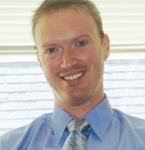A Place to Call Home: Immigrants, Refugees, and Displaced Persons
EAD 2010 Annual National Gathering focused on the needs of those displaced by economic, social and economic forces in the U.S. and abroad
Friday March 19 – Monday, March 22, 2010
And Jesus said to him, ‘Foxes have holes, and birds of the air have nests; but the Son of Man has nowhere to lay his head.’ -Luke 9:58
Policy makers, expert speakers and representatives from global regions joined nearly 1,0000 church leaders and grassroots activists in reflecting on the 2010 Ecumenical Advocacy Days conference theme, “A Place to Call Home: Immigrants, Refugees, and Displaced Peoples.” The conference focused a variety of workshops and presentations on the subject of shaping U.S. immigration and refugee policies, and provided an opportunity to explore how the problems of migration and forced displacement around the world are being accelerated by worsening economic conditions, conflicts and global climate change.
Speakers and preachers included the Rev. Dr. Sharon Watkins, General Minister and President of the Christian Church (Disciples of Christ) and a member of President Obama’s Advisory Council on Faith-Based and Neighborhood Partnerships; Bishop Minerva Carcaño of the United Methodist Church Desert Southwest Conference; and Sister Helen Prejean, Anti-Death Penalty Activist and author of Dead Man Walking.
“Debates about immigration may be the lens through which U.S. citizens view the issue of global migration, but the situation here is just part of a global phenomenon of migration within and across borders,” explained Jesse Marsden, conference coordinator for Ecumenical Advocacy Days. “Whether due to poverty, war or climate change, the number of migrants and displaced people around the world is greater than ever before. As Christians we are reminded that Jesus and his family had to flee home and seek a place to lay their head, and as followers we’re called to welcome the stranger in our midst. As citizens we should work for policies and practices that make a place for the displaced and secure the rights of the uprooted.”




